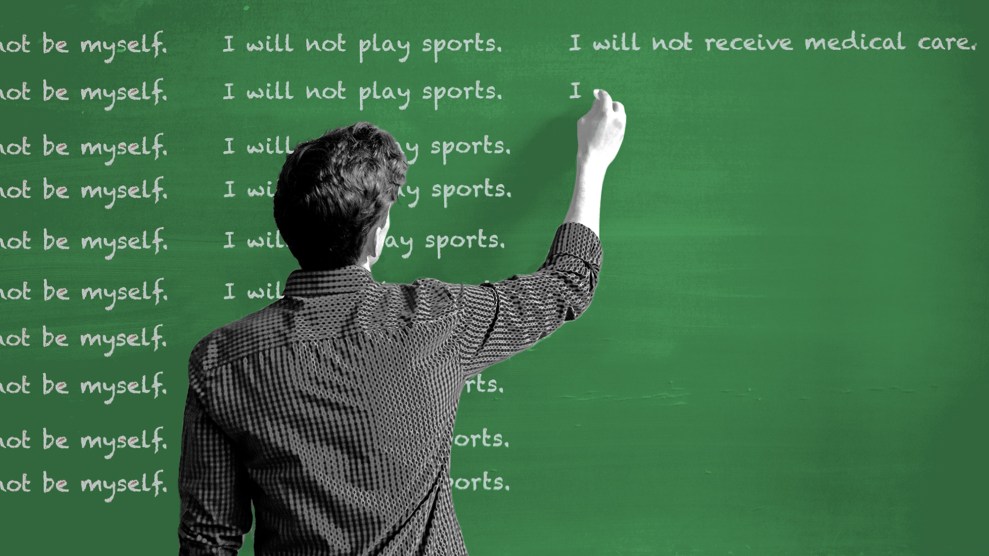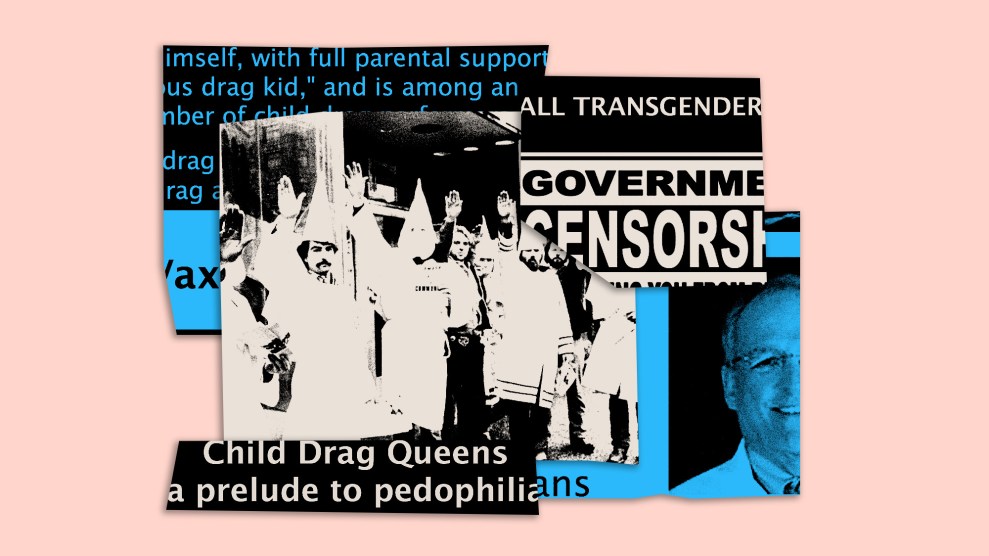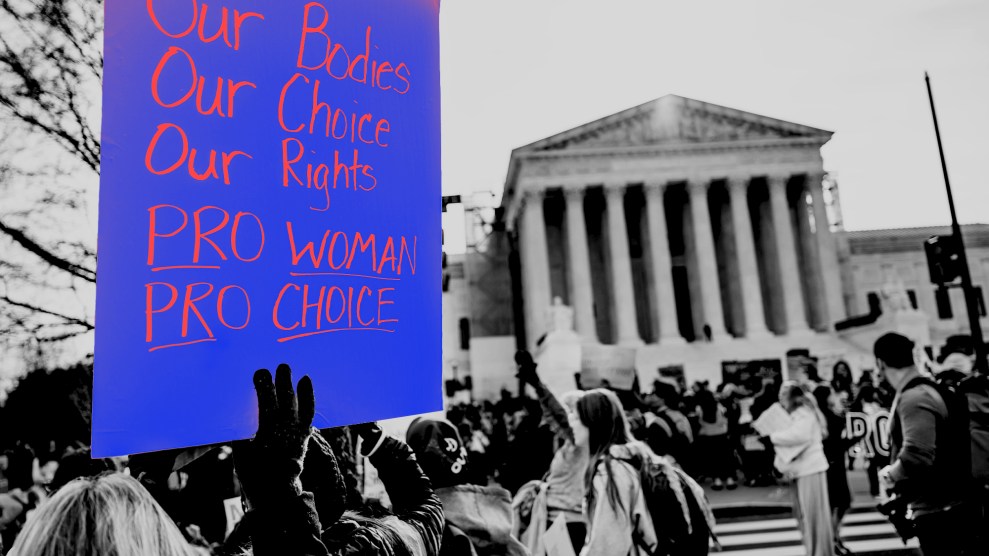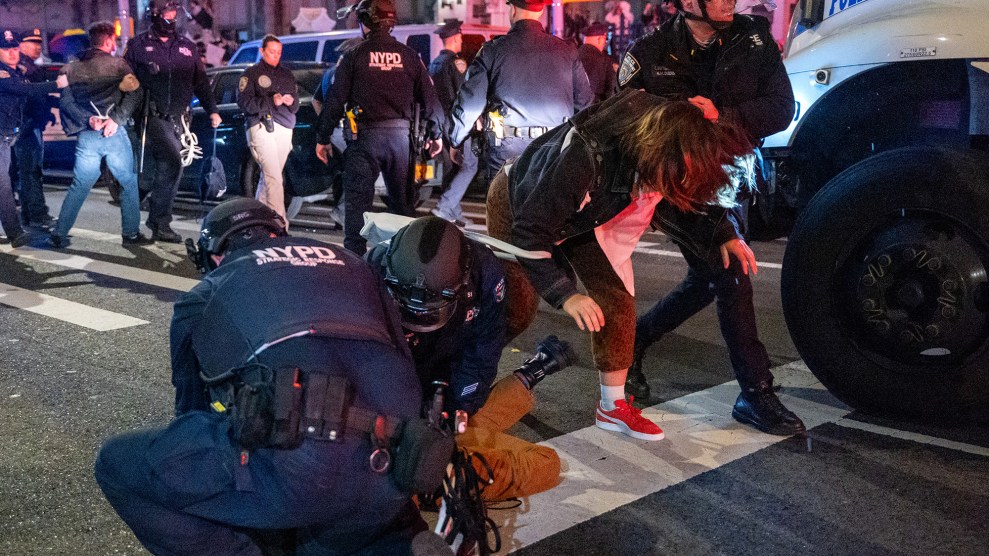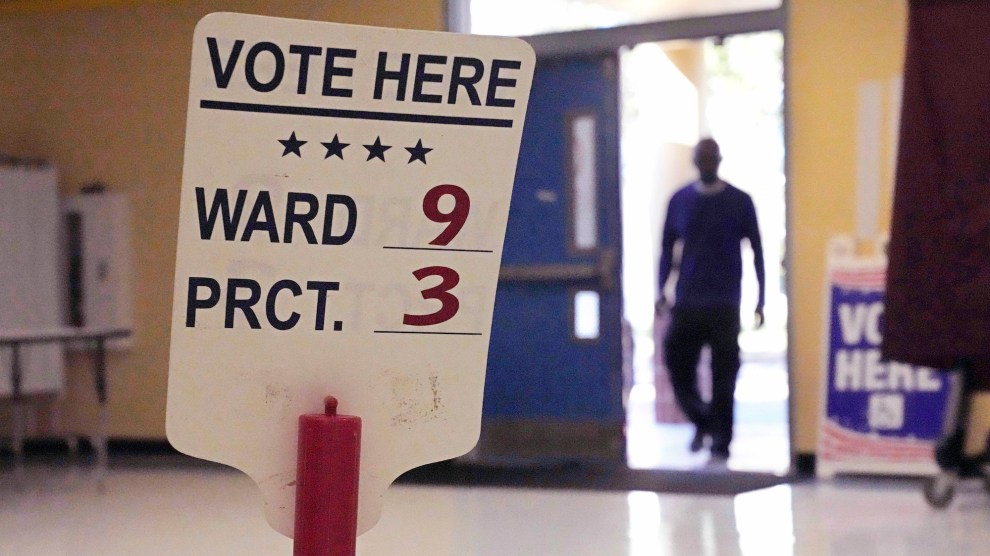
A bus at the Nashville Pride parade on June 25, 2022 in Nashville, Tennessee. Mickey Bernal/Getty Images
A federal judge ruled late Friday that Tennessee’s law restricting drag shows is unconstitutional. The decision is a ray of sunshine during Pride month as state bans on drag performances and related bills that exclude and deny care to transgender individuals proliferate across the country.
The Tennessee law, the Adult Entertainment Act, bans “adult cabaret entertainment,” including performers dressed in drag, in public spaces or any place where a minor could view it. Friends of George’s, a nonprofit that hosts drag performances sued the state, arguing that the law violated their First Amendment right to free expression.
District Court Judge Thomas Parker agreed. The law in question “can criminalize—or at a minimum chill—the expressive conduct of those who wish to impersonate a gender that is different from the one with which they were born in Shelby County,” Parker wrote. “Such speech is protected by the First Amendment.”
The legislative history, Parker noted, shows that the ban “is geared towards placing prospective blocks on drag shows—regardless of their potential harm to minors.” He also deemed the law unconstitutionally vague and overreaching. By criminalizing a show “anywhere” a minor could be present, it “regulates an area that is of an alarming breadth.”
Republican Gov. Bill Lee signed the bill into law in March, making Tennessee the first state to restrict drag shows. The law was slated to take effect on July 1. It’s not yet known whether the state’s attorney general plans to appeal the decision.
Drag shows and transgender people have been targeted nationwide by Republican lawmakers and violent vigilantes. At least 26 bills in 14 states have been introduced so far this year aiming to ban or restrict drag performances. Shortly before announcing his run for president, Florida Gov. Ron DeSantis signed a series of bills restricting drag performances, medical care for transgender minors and adults, bathroom access, and even the use of alternative pronouns at school. Texas Gov. Greg Abbott is poised to sign legislation targeting drag shows.
GLAAD, a nonprofit that supports LGBTQ rights, celebrated the Tennessee ruling Saturday as a “turning point” against this recent wave of legislation. “Every anti-LGBTQ elected official is on notice that these baseless laws will not stand and that our constitutional freedom of speech and expression protects everyone and propels our culture forward,” Sarah Kate Ellis, the group’s president and CEO, said in a statement. “Our first amendment rights were affirmed today as drag artists and makers of theatre,” added the plaintiff, Friends of George’s. “Similar to the countless battles the LGBTQ+ community has faced over the last several decades, our collective success relies upon everyone speaking out and taking a stand against bigotry.”

